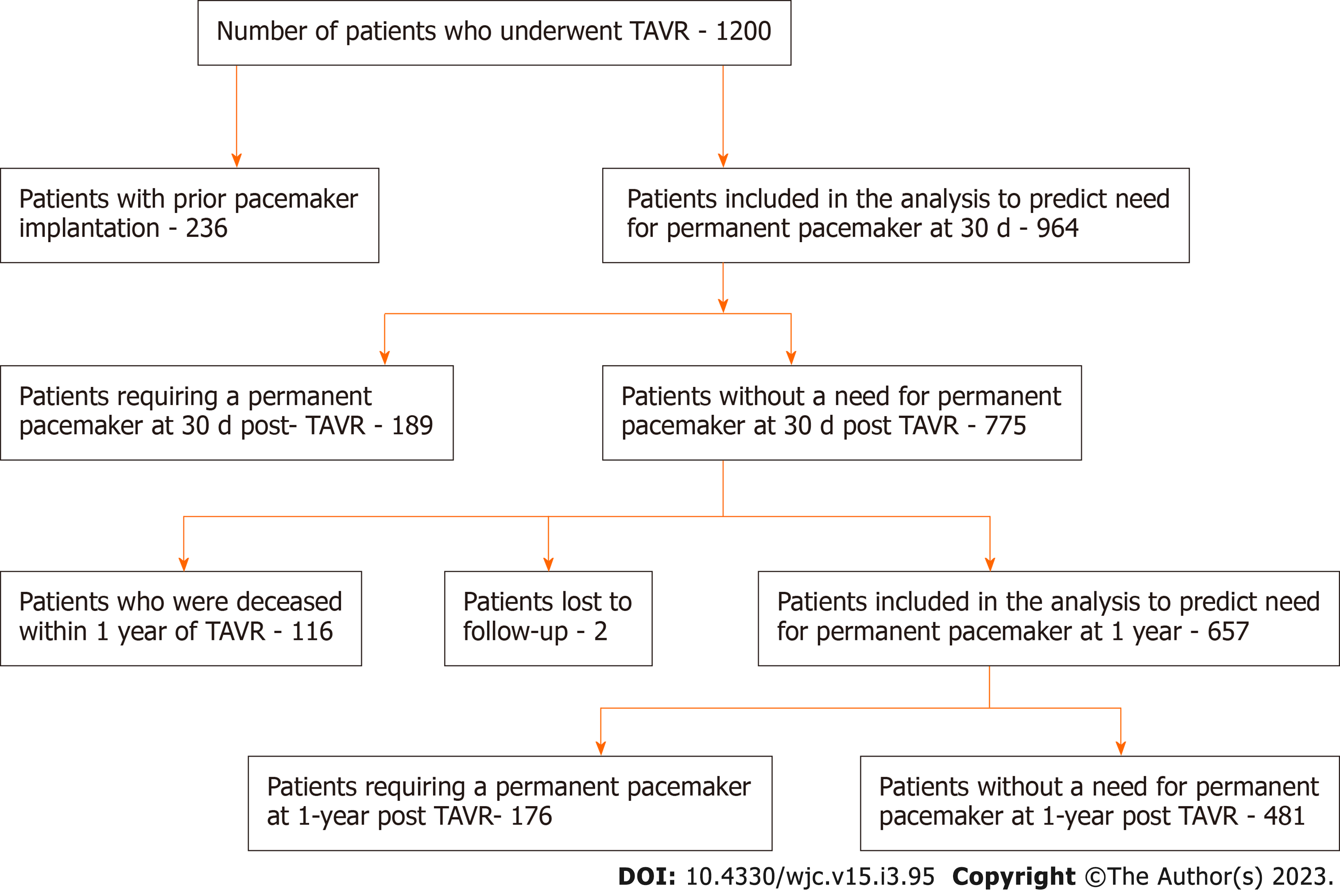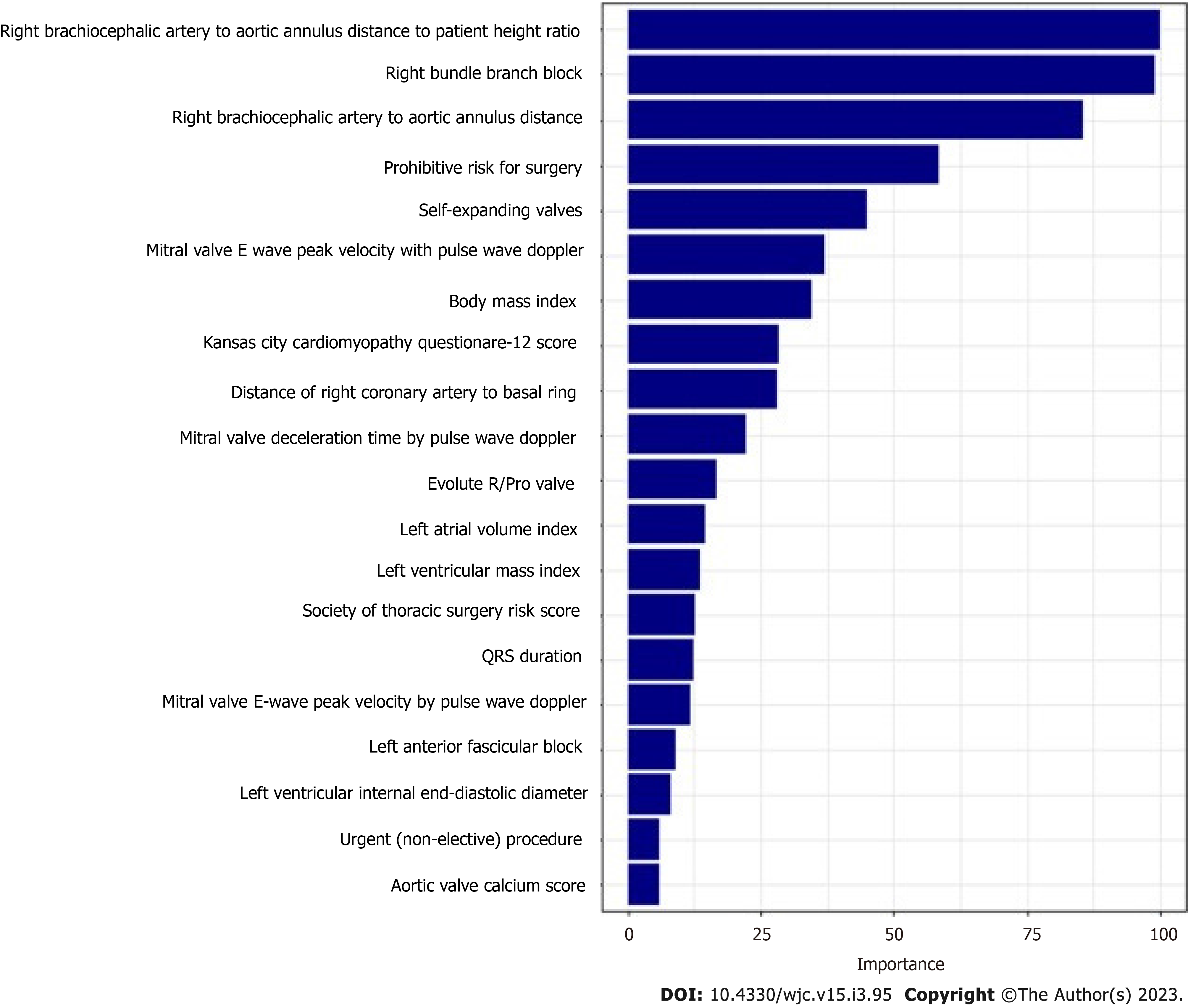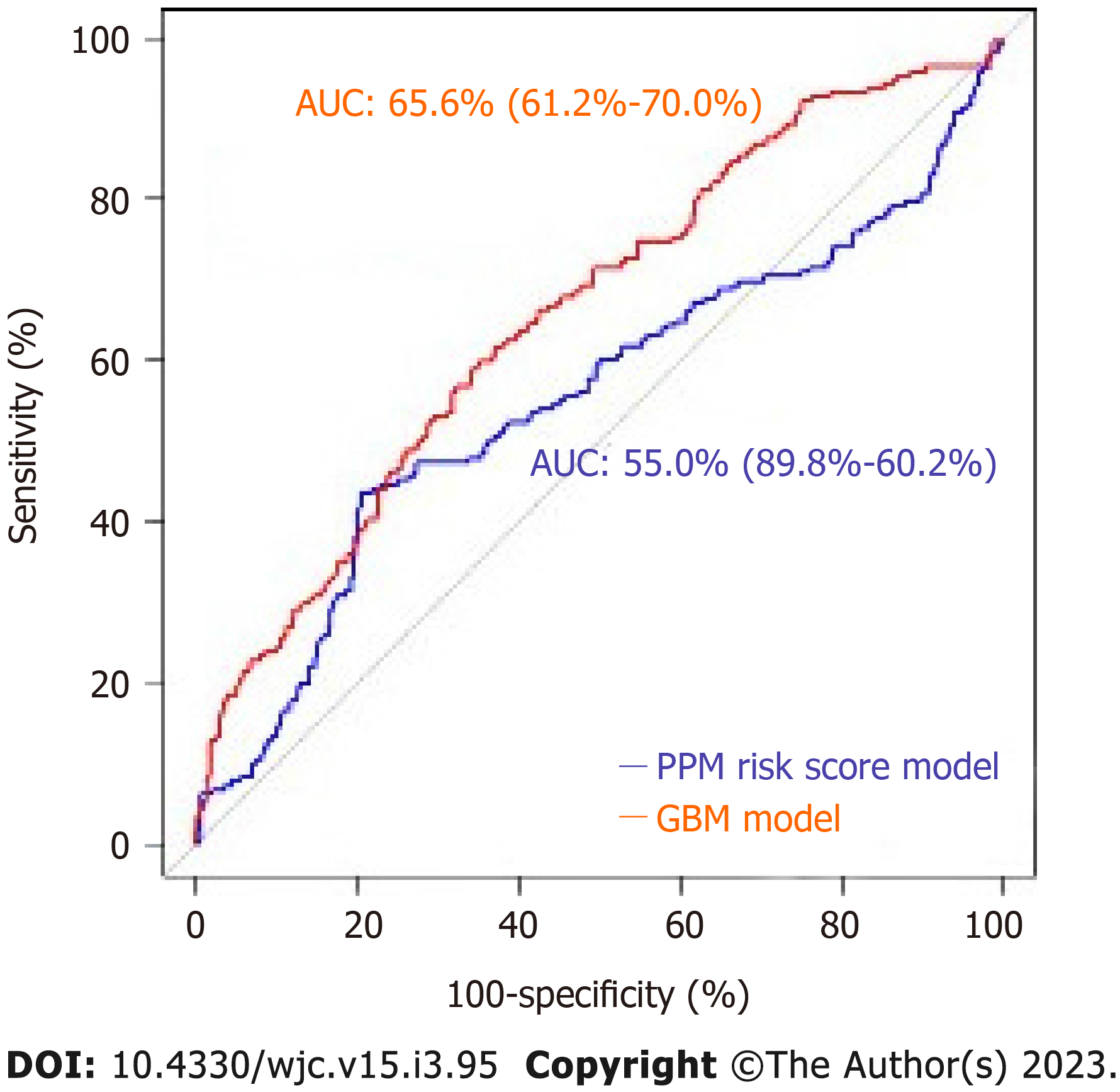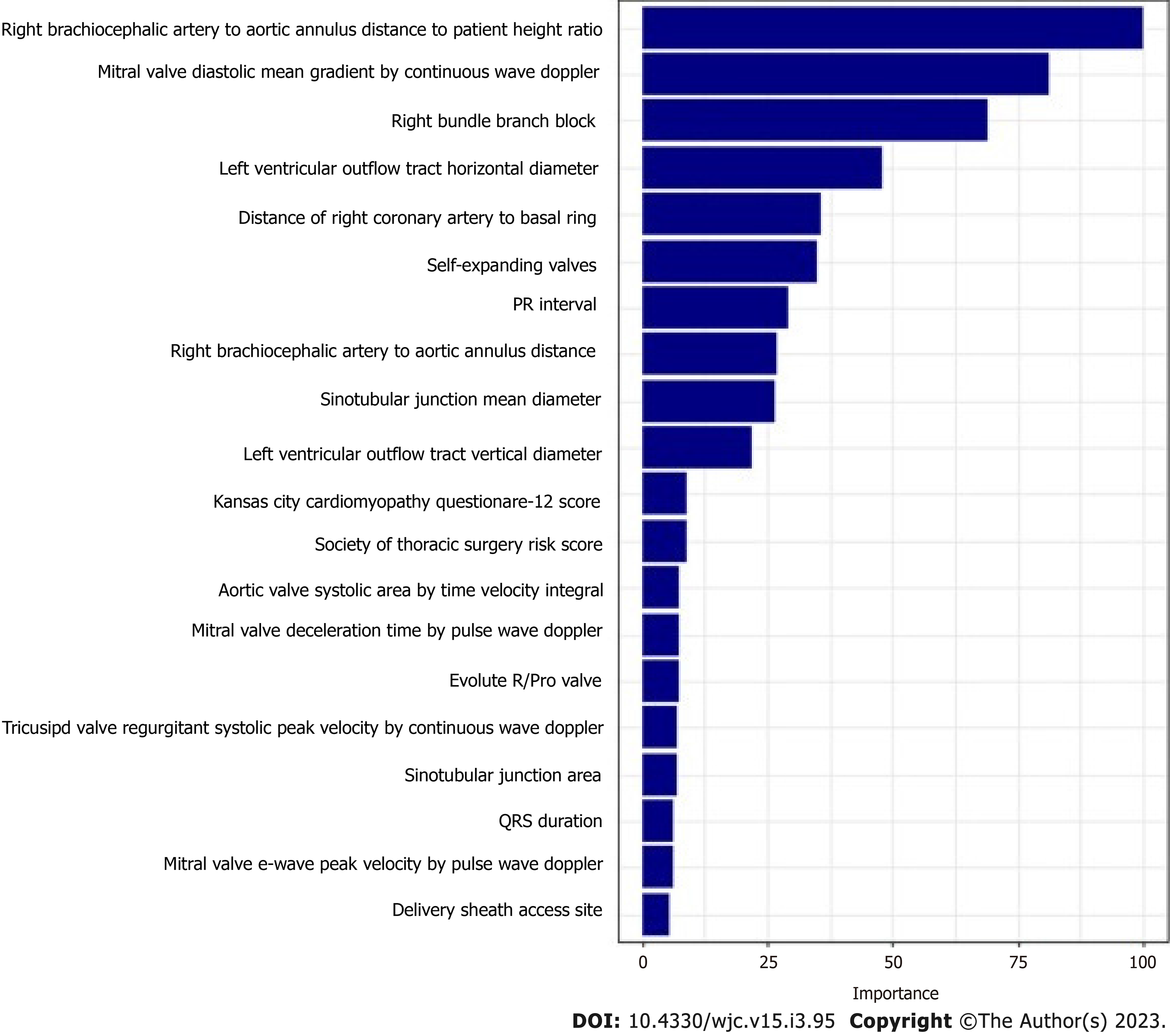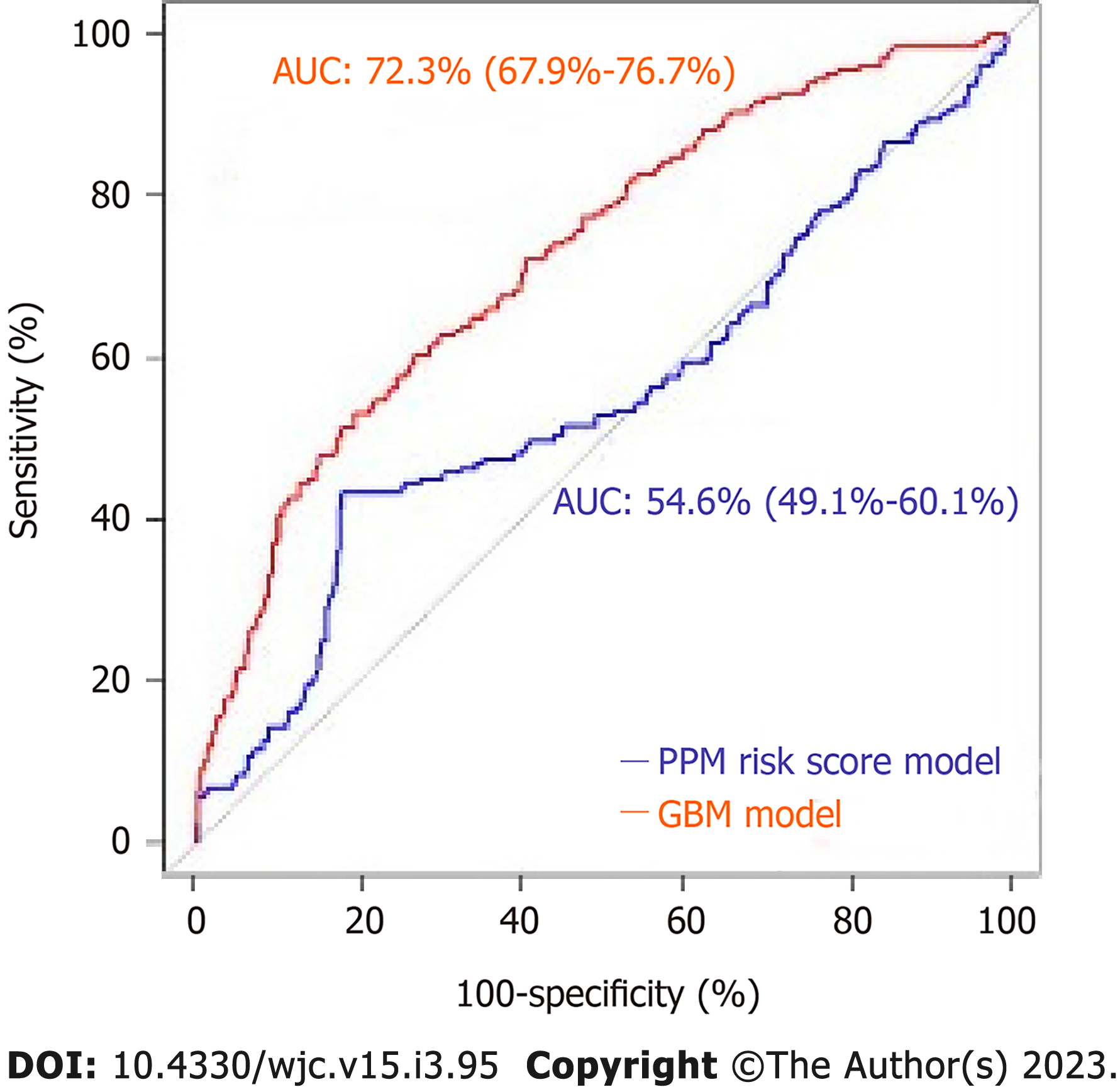Copyright
©The Author(s) 2023.
World J Cardiol. Mar 26, 2023; 15(3): 95-105
Published online Mar 26, 2023. doi: 10.4330/wjc.v15.i3.95
Published online Mar 26, 2023. doi: 10.4330/wjc.v15.i3.95
Figure 1 Flowchart depicting patient recruitment for the analysis transcatheter aortic valve replacement-transcatheter aortic valve replacement.
TAVR: Transcatheter aortic valve replacement.
Figure 2 Variables with the highest importance in a gradient boosting model to predict the need for a permanent pacemaker at 30 d.
Figure 3 Receiver operator curves of the gradient boosting model and permanent pacemaker risk score model to predict the need for a permanent pacemaker at 30 d.
GBM: Gradient boosting model; PPM: Permanent pacemaker model.
Figure 4 Variables with the highest importance in the gradient boosting model to predict the need for a permanent pacemaker at 1 year.
Figure 5 Receiver operator curves curves of gradient boosting model and permanent pacemaker risk score model predicting the need for a permanent pacemaker at 1 year.
GBM: Gradient boosting model; PPM: Permanent pacemaker model.
- Citation: Agasthi P, Ashraf H, Pujari SH, Girardo M, Tseng A, Mookadam F, Venepally N, Buras MR, Abraham B, Khetarpal BK, Allam M, MD SKM, Eleid MF, Greason KL, Beohar N, Sweeney J, Fortuin D, Holmes DRJ, Arsanjani R. Prediction of permanent pacemaker implantation after transcatheter aortic valve replacement: The role of machine learning. World J Cardiol 2023; 15(3): 95-105
- URL: https://www.wjgnet.com/1949-8462/full/v15/i3/95.htm
- DOI: https://dx.doi.org/10.4330/wjc.v15.i3.95









